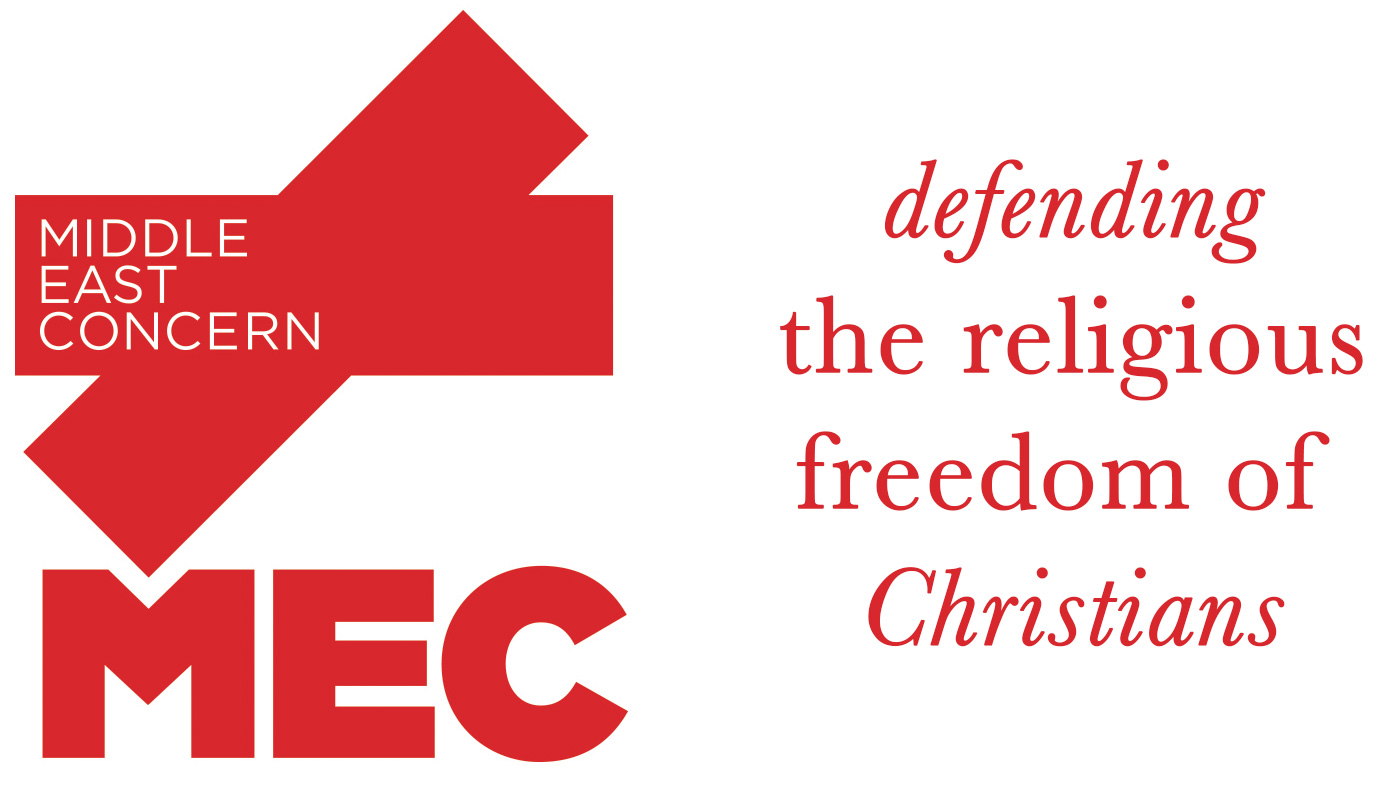Introductory Video
MEC was founded in 1991, in response to needs expressed by Christian leaders in the Middle East and North Africa region.
MEC’s member organisations and member individuals include Christians living and working in all 24 countries and territories in the region: Algeria; Bahrain; Egypt; Iran; Iraq; Israel; Jordan; Kuwait; Lebanon; Libya; Mauritania; Morocco; Northern Cyprus; Oman; Palestine; Qatar; Saudi Arabia; Somalia; Sudan; Syria; Tunisia; Turkey; United Arab Emirates; Yemen.
MEC (Middle East Concern) supports people in the Middle East and North Africa who are marginalised, discriminated against or persecuted for being or becoming Christians
Persecution takes many forms – from oppression and discrimination to denial of constitutional and internationally acknowledged freedoms. For centuries Christians in the Middle East and North Africa have been discriminated against, marginalised, detained, imprisoned, tortured and even killed for their faith in Jesus Christ. Believers from Muslim backgrounds are often in great danger, suffering in silence, cut off from family and Christian fellowship, and vulnerable to abuse by state security forces and extremist groups.
MEC believes Christians are called to stand with those who are persecuted. Christians are called not only to expect persecution but also to fight injustice. Responding to the injustice of persecution is part of the Christian calling:
“Remember those in prison as if you were their fellow prisoners, and those who are mistreated as if you yourselves were suffering”
Hebrews 13:3
MEC works with churches and community leaders to monitor persecution and discrimination. On the request of local church leadership, MEC provides support by:
assisting victims of persecution
- offering encouragement and informed, trustworthy expertise
- mobilising worldwide prayer, in open or confidential networks
- initiating political advocacy on behalf of victims of persecution
- providing practical and financial support
challenging unjust laws, policies and attitudes
- undertaking research-based advocacy on legal and policy issues that underlie persecution
- campaigning for the reinstatement of civil rights to converts from Islam
- addressing unhealthy responses to persecution such as hasty relocation to the West
equipping Christians to face persecution
- leading seminars to help Christians respond Biblically to suffering and persecution
- training community leaders in constitutional rights and international law
- providing training in crisis management and handling arrest and interrogation
The mandate of MEC is taken from the Bible and other sources including (in chronological order):
MEC welcomes more recent statements by leaders from a range of church traditions which reaffirm a commitment to promoting religious freedom and supporting those persecuted for their faith. These statements include the following (in chronological order):
“Persecution must raise the awareness of Christians worldwide of the need for greater solidarity. It must also arouse in us the commitment to support and insist on international law and respect for all people and all peoples. The attention of the whole world should be focused on the tragic situation of certain Christian communities of the Middle East which suffer all manner of trials sometimes even to the point of martyrdom.”
“We commit ourselves to share in the suffering of members of the body of Christ throughout the world, through information, prayer, advocacy and other means of support.”
“In many cases, Christians [of the Middle East] are treated as ‘second class’ citizens. In other cases, their places of worship… are profaned or destroyed, or elsewhere the performance of religious services and education of clergy are restricted. In addition to all this, occasionally there are examples of assaults of bloody violence against Christians, deriving from extreme circles of religious fanatics… We do not refrain from demanding the protection to which we are entitled by the states where we live. This, we believe, is the sole solution to the problems of the greatly tormented region of the Middle East, as well as of the entire world.”
Board of Reference
-
Lord David Alton, UK
-
Brother Andrew, Netherlands
-
Dr Donald Argue, USA
-
Rev Daniel Bianchi, Argentina
-
Robyn Claydon, Australia
-
Julia Doxat-Purser, UK
-
Dr Joseph D’Souza, India
-
Rt Rev Derek Eaton, New Zealand
-
Dr Bertil Ekström, Brazil
-
Annelie Enochson, Sweden
-
Rev Afeef Halasah, Jordan
-
Rev Edward Hovsepian, Iran
- Dr Ehab al-Kharrat, Egypt
-
Rev Bob Lopez, Philippines
-
Murray Louw, South Africa
-
Dr Don McCurry, USA
-
Dr Paul Marshall, USA
-
Rev Youssef Ourahmane, Algeria
- Rev Ihsan Özbek, Turkey
-
Rev Ariovaldo Ramos, Brazil
- Dr Uziel Santana, Brazil
- Dr Jack Sara, Palestine
-
Peter Tarantal, South Africa
-
Rev Eberhard Troeger, Germany
-
Mats Tunehag, Sweden
-
Dr Dudley Woodberry, USA
